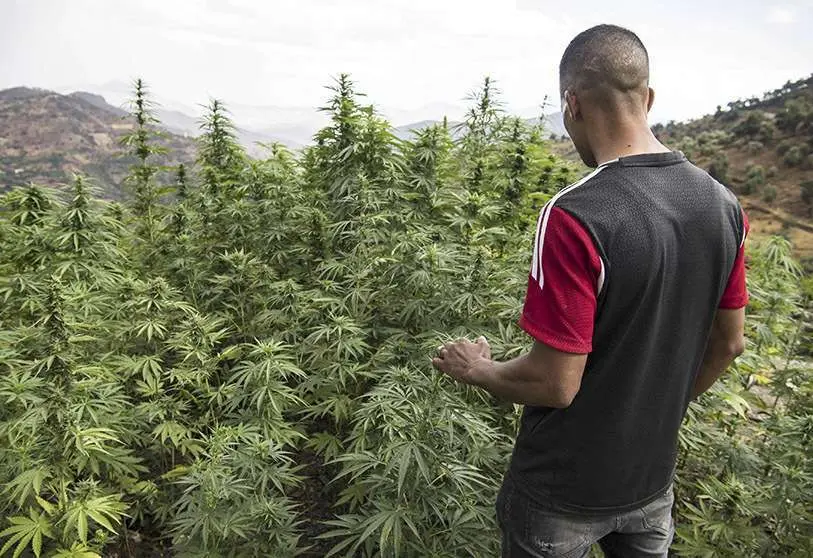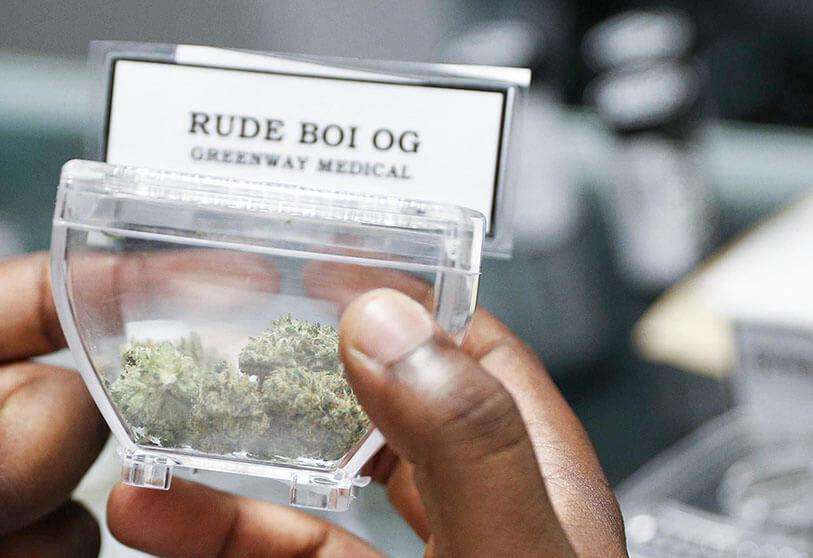Marruecos aprueba un proyecto de ley para legalizar el cannabis

The Moroccan government has approved a bill that will legalise the cultivation of cannabis - from which the drug hashish is extracted - for both medical and industrial use. The measure was drafted by the Interior Ministry during the weekly cabinet meeting. It had to be delayed for two weeks because Saad Eddine El Othmani's government began studying the proposal on 25 February, according to information published by the official Moroccan news agency. Having been approved by the government, it is now up to the House of Representatives to discuss its content before the vote that will bring the new legislation into force.
Once approved by Parliament, this law will allow some farmers to grow cannabis on their own. However, they must first obtain a licence from the government. The plant will have to be grown under specific conditions and always with the aim of using it for medical and cosmetic purposes, although it will also be possible, specifically, to grow it for industrial purposes. However, this measure would not have been possible without the United Nations Drug Commission's approval in December of the removal of the cannabis plant from the list of dangerous drugs, thanks to the favourable vote of 27 of the 53 countries on the UN Committee, including Morocco.

This was the first occasion on which the Moroccan authorities officially announced their intention to regularise cannabis cultivation through legal methods. An idea that has always been controversial due to the illegal production that has traditionally taken place in the north of the country. Production in the regions closest to the Strait of Gibraltar is destined for hashish, which is transported by smugglers throughout Europe. The government has already been paving the way for some time. On 11 February, following the recommendation of the United Nations, Morocco's National Narcotics Committee removed cannabis from the list of substances that pose a serious threat, thus beginning to create a legal framework that would make it possible to pass the bill that is expected to see the light of day in the very near future.
One of the most worrying tasks within the government is the capacity to control the plant's production. The creation of an agency is envisaged in the bill. This agency is expected to be able to control Morocco's strategy in the field of hemp cultivation, production, processing and marketing. Granting, withdrawing or renewing licences falls within the scope of the agency, which will also be in charge of tracking cannabis stocks and supervising producers of the plant, according to Moroccan News. Controlling that the use of cannabis does not exceed the stipulated limits or lead to other illegal actions will also be its task.

The bill aims to take advantage of "the opportunities provided by the global market for the cannabis project", as well as to "improve farmers' incomes and protect them from international drug trafficking networks". Moreover, opening up to an international market was very tempting for a country that wants to take advantage of all the benefits that regularised cannabis production can bring. Since 1954, hemp cultivation had been totally banned in Morocco, although its effect did not make it disappear altogether. In fact, production continued on a regular basis, especially in the northern regions.
Now, cannabis can finally be legally produced in Morocco. Several parliamentary groups have been trying to take such measures for years, but they have not even been discussed in parliament.








